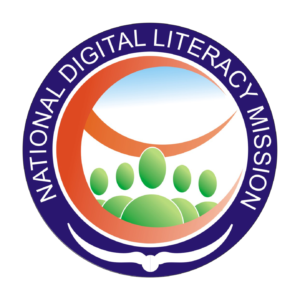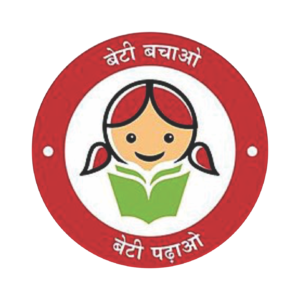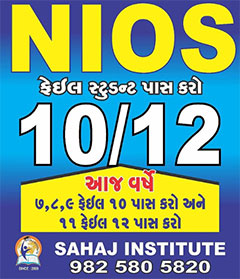English (302)
Course Structure Of English
The total marks for English is 100. There will be one paper of 3 hrs. duration. The allocation of marks is a follows:
| 1. | Prescribed texts | 20 marks |
| 2. | Functional Grammar | 15 marks |
| 3. | Functional writing skills | 25 marks |
| 4. | Comprehension (unfamiliar passages) | 20 marks |
| 5. | Optional module | 20 marks |
| Total | 100 marks | |
Syllabus-English Medium
Module 1. Reading comprehension (prescribed texts) and functional grammar.
Study time 100 hrs.
Marks 20+15
A variety of genres – short stories, expository pieces, biographies, poems, plays,
newspaper and magazine excerpts have been included. Teaching of grammar has been
integrated with the reading texts. The emphasis is on functional grammar.
The following ten prose texts and five poems have been selected for development of
different reading skills.
Prose texts (Prescribed)
1) A warmer or a colder earth (popular science) Arthur – C. Clark
2) The tiger in the tunnel (narrative) – Ruskin Bond.
3) First two or four pages from Sunny Days (autobiographical) – By Sunil Gavaskar
4) Case of suspension (narrative)
5) Big brother (narrative) Shekhar Joshi
6) Father, dear father (news paper article form the Hindu)
7) Face to face (autobiographical) Ved Mehta
8) I must know the truth (narrative) Sigrun Srivastva
9) If I were you (play) Douglas James
10) India, her past and her future (speech) Jawahar Lal Nehru
Poems
1) Leisure – W H Davis
2) The road not taken – Robert Frost
3) Where the mind is without fear- Tagore
4) My grandmother’s house – Kamla Das
5) The night of the scorpion – Nissi, Ezekiel
Non prescribed
In this section learners will be exposed to newspaper, articles, tables, diagrams,
advertisements etc. which they have to read carefully and interpret. In the examination
similar pieces will be used.
Grammar and usage
The following points of grammar and usage have been selected from the reading
passages.
1) agreement/concord: number – gender etc.
2) Tenses: simple past (negatives/interrogatives) present perfect, past perfect continuous,
past perfect, expressing future time (will and going to)
3) Passive voice (perfect tenses and modals)
4) Modals (must, should ought to, would)
5) Linking words (to like because although, instead of, if, as, since, who, which that,
when however, inspite of)
6) Reported speech, statements, questions (yes/no)
Module 2
Functional writing and study skills
Study time 70 hrs.
25marks
This module help the learner to write descriptive and narrative paragraph, letters, reports
notices etc. and also practice skills of note making
1. Paragraph writing
• Describing objects
• Describing people
• Narrating events, stories
2. Letter writing
• Application for leave
• Application for jobs
• Asking for information form various agencies (e.g. Last date for getting
prospects; price of items before placing doers etc.
3. Note making
4. Ending (punctuation, spelling, appropriate vocabulary, structures)
Module – 3
Listening and speaking skills
In this module the learners will be exposed to a variety of listening activities recorded on
audiotapes. These will be samples of good spoken English, which the learners can use as
models. Work sheets will accompany the listening material.
This module will include the following:
1. Introducing yourself/friends in formal and informal situations.
2. Inviting people (over the phone and face to face) giving details of occasion, time
place and date. Acceptance and refusal of invitation – formal and informal.
3. Seeking and supplying information (example opening an account in a bank, applying
for loans etc.)
4. Talking and conveying messages (over the phone and face to face).
5. Giving directions / instruction.
6. Discussing contemporary issues related to environment, child labour, gender bias etc.
7. Listening to excepts form television and radio.
8. Listening to poems/plays (prescribed).
9. Listening to speeches / talks.
10. Listening to songs like “We shall overcome”.
Module 4 – 6
English for specific purposes
Study Time 40 hrs.
20 marks
There modules are being offered. A learner has to opt for any one. The first is for
academic purposes and the next two are for vocational purposes. The focus is not on the
teaching of the subject matter like science and literature but on the way in which
language is used in the deferent subjects.
Module 4
English for Science
Study Time 40 hrs.
This course will introduce learners to some interesting pieces of popular science.
1. Health and hygiene
2. Conservation of (nearly extinct) animals.
3. Plant life.
4. Bio gas / solar energy.
These pieces illustrate the use of English in scientific writing: giving information
factually, logically and objectively.
Module 5
English for Receptionist
Study Time 40 hrs.
This module will introduce the learners to a variety of exercises, tasks and meaningful
activities related to the receptionist’s use of English. The printed course materials will be
supported by tapes.
The following competencies be developed:
1. Receiving messages, making request etc.
2. Supplying information
3. Giving advice and making suggestions
4. Dealing with complaints
5. Making entries in an appointment book, register etc.
Module 6
English for Office Use
Study Time 40 hrs.
This course will help the learner to use English effectively and appropriately in the office
environment. The competencies will be developed.
1. Using the telephone taking and passing messages.
2. Receiving messages
3. Marking noting on files and circular.
4. Writing office notes, memos, notices, agendas for meetings.
5. Telegrams and fax messages.
6. Writing business letters, application enquires, complaints.
7. Filling in forms, cheques, pay in slips etc.
For any help related to admission in NIOS please contact Sahaj Institute on our Mobile No. 9825805820, 8200311128.



